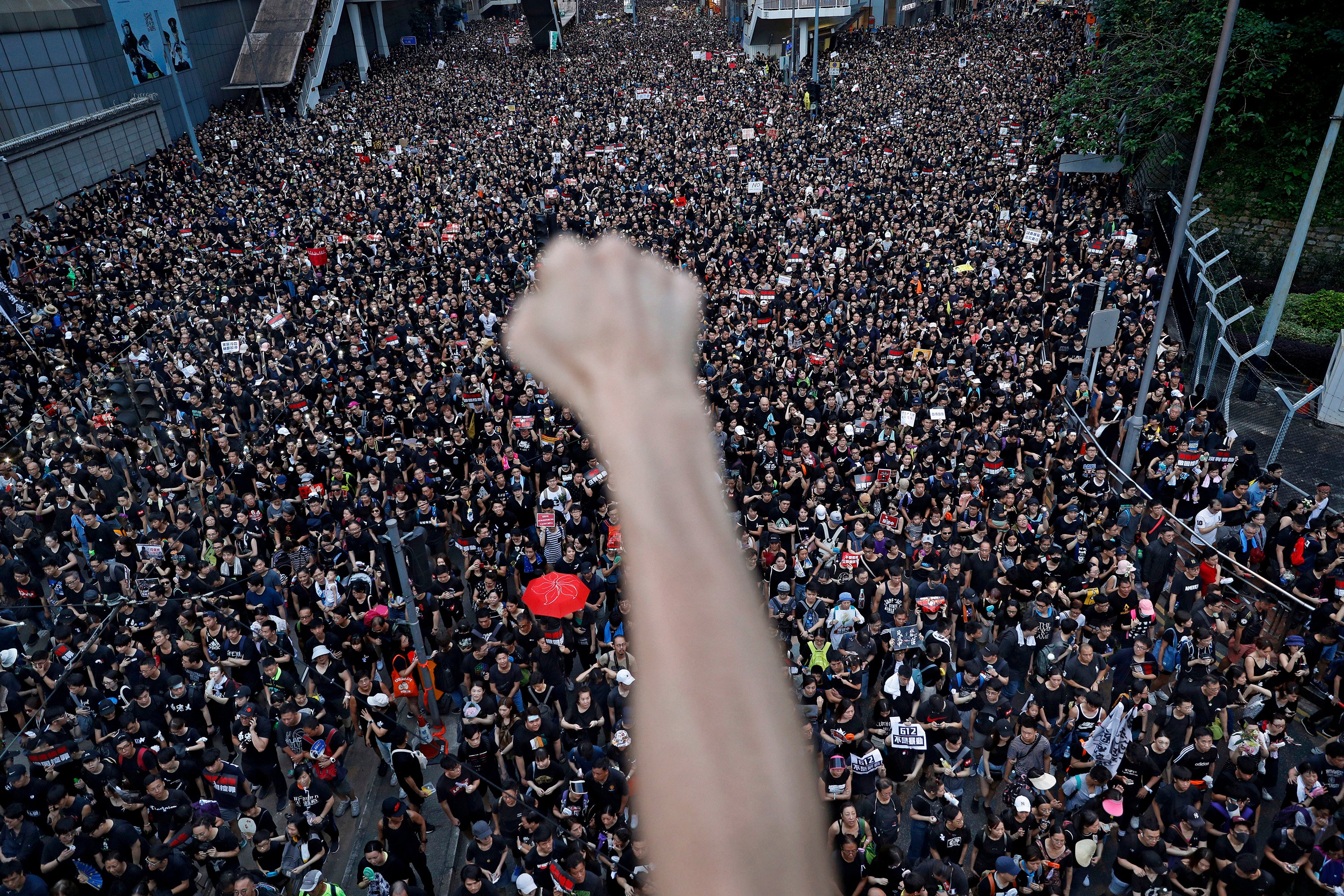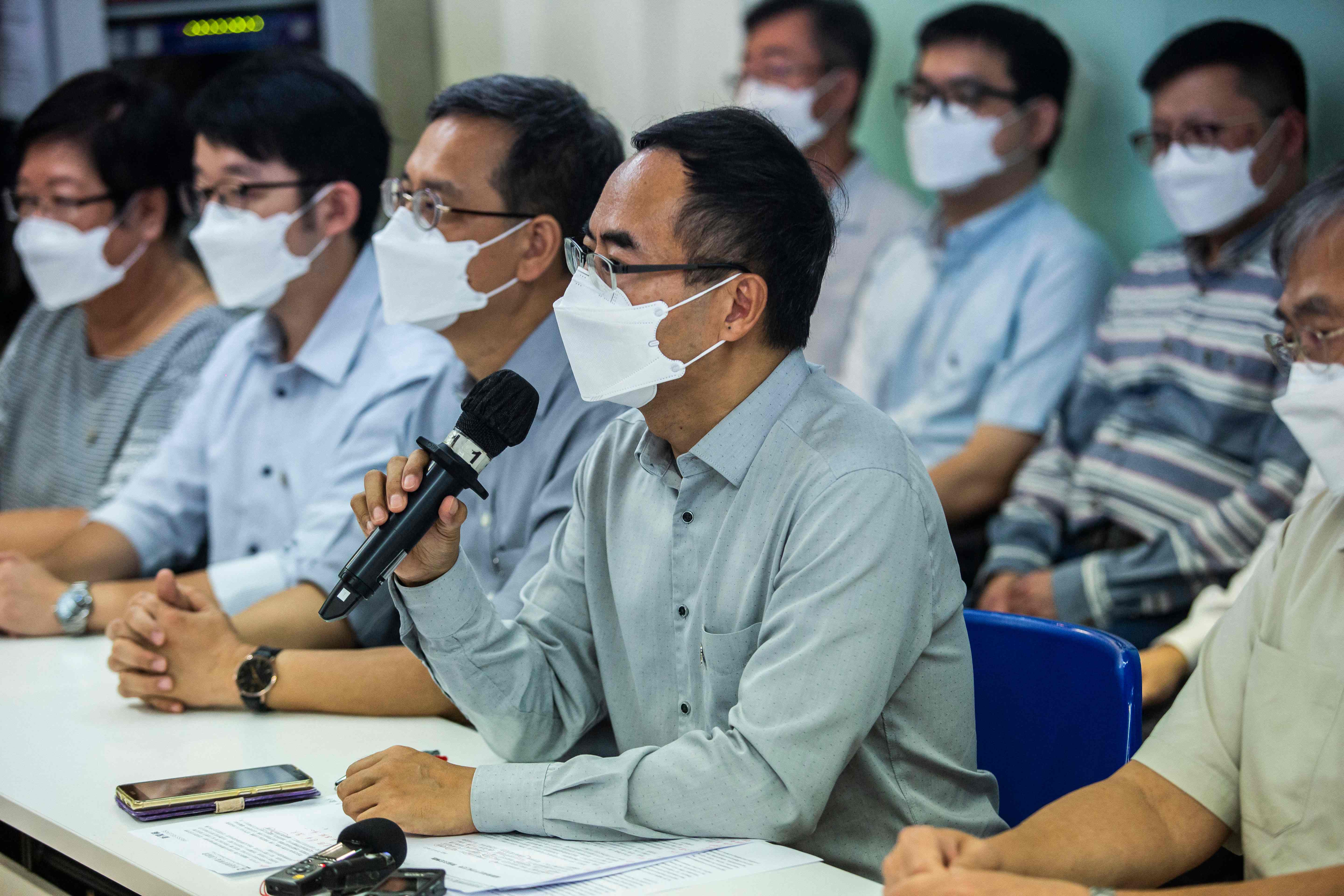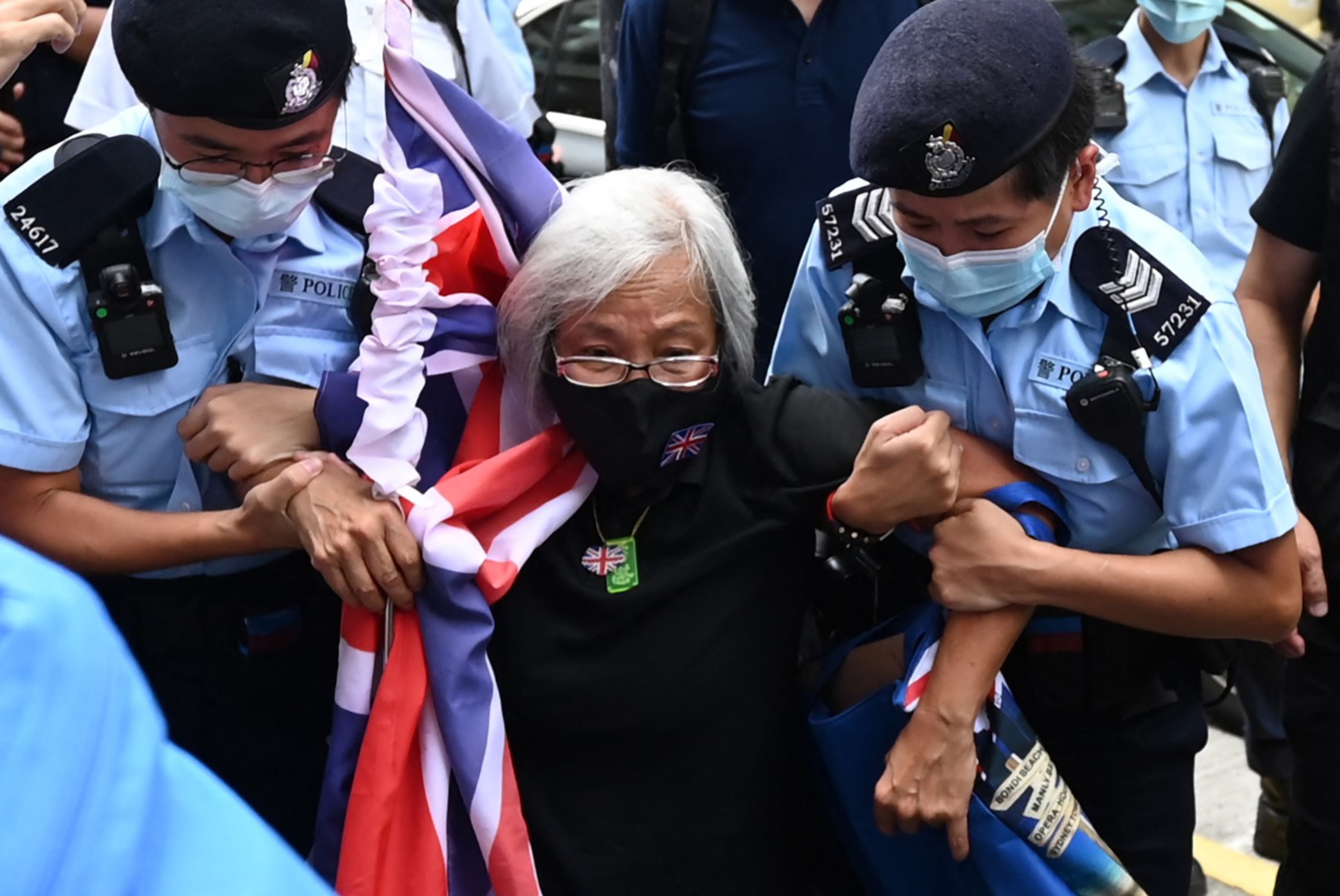‘Winter has arrived’: Civil society groups in Hong Kong are forced to disband amid growing crackdown
Before it was disbanded, several leading figures from the Civil Human Rights Front have been detained under charges related to their past activism, writes William Yang


After days of difficult contemplation, the Civil Human Rights Front (CHRF), the umbrella group behind most of the major demonstrations in Hong Kong over the past two decades, announced on Sunday that it had decided to disband as it could no longer operate as Beijing’s crackdown on Hong Kong’s civil society increases.
“In the past year, the government has continued to use the epidemic as an excuse to reject demonstrations’ applications from the CHRF and other groups,” the CHRF said in a statement. “Member groups have been suppressed, and civil society has faced unprecedented severe challenges.”
Prior to its disbandment on Sunday, the CHRF has been facing growing pressure from the Hong Kong government after several of its leading figures, including former conveners Figo Chan and Jimmy Sham, have been detained under charges related to their activism in the past.
Additionally, Hong Kong’s police commissioner warned last Friday that some mass rallies organised by the group may have violated the National Security Law (NSL). “In recent years, the CHRF has organised a series of mass rallies, and some of them are suspected of violating the national security law. The force will investigate thoroughly,” Hong Kong police commissioner Raymond Siu told the state-owned Ta Kung Pao.
Siu claimed that the CHRF never registered with the Hong Kong government since its founding in 2002, and emphasised that the police could act against unlawful groups at any time.
It’s about transforming Hong Kong from being a free society into one that is controlled by the Chinese Communist Party
The news comes after Hong Kong’s biggest professional union, the Professional Teachers’ Union (HKPTU), announced its disbandment last Tuesday, following the Hong Kong government’s decision to sever ties with the union, and with police warning that there would be further actions against them.
Despite its decision to disband, Chinese state media keeps going after the Professional Teachers’ Union, with the Xinhua News Agency saying the disbandment of the group hadn’t remove all the illegal conduct that the union had displayed before.
“Hong Kong is a society governed by the rule of law, therefore, regardless of whether the HKPTU is dissolved or not, the relevant law enforcement agencies in Hong Kong should enforce the law impartially and investigate according to the law,” wrote Xinhua in an opinion piece.

On 13 August, Hong Kong’s state-owned newspaper Wen Wei Po published an article accusing the Hong Kong Journalist Association (HKJA) of using “fake journalists” to obstruct police operations following the anti-extradition bill protest of 2019, as well as allowing journalists to “smear the Hong Kong government, the police and the NSL”.
The move raises concerns that HKJA could be the next target of the Hong Kong government’s ongoing crackdown. Some members of the association are named by Wen Wei Po in the article.
So far, more than 30 political and professional organisations have disbanded since the NSL came into force last year. Meanwhile, the Chinese government has launched a campaign called “patriots rule Hong Kong”, which is a mechanism that will vet the loyalty of public office holders and local politicians.
A total dismantling of Hong Kong’s civil society
Some observers view the ongoing campaign against civil society groups as part of Hong Kong and the Chinese government’s plan to dismantle the city’s civil society. “It’s not just people who are the most ‘radical’ that are being targeted,” said Maya Wang, senior China researcher at Human Rights Watch. “It’s about transforming Hong Kong from being a free society into one that is controlled by the Chinese Communist Party (CCP).”
“There are quite a lot of civil society groups that the authorities could go after,” said Mike Mo, a former pro-democracy district councillor in Hong Kong, who went into a self-imposed exile in the United Kingdom last month.
They are pretty much the chief organiser of any protest in Hong Kong, and their disbandment is a big blow for Hong Kong’s civil society
As more organisations face pressure from the government, Mo thinks it will become much harder for civil society groups to achieve the high degree of coordination they used to have. “The Civil Human Rights Front has been serving as a connecting hub for different civil society groups,” he says.
“They are pretty much the chief organiser of any protest in Hong Kong, and their disbandment is a big blow for Hong Kong’s civil society. There will hardly be any coordinated response from civil society in the future and everyone has to be on their own,” he added.
Wong Yik-mo, the former vice convener of CHRF, who is now in self-imposed exile in Taiwan, said it is clear that the Hong Kong government is trying to crack down on all organisations that might still have some influence over civil society. “The government is telling the civil society to stop anything that they’ve been doing, because even organisations like the CHRF, which organised peaceful demonstrations, have to disband,” he told The Independent.
“Winter has arrived in Hong Kong”
With more civil society organisations and professional unions likely becoming targets of the Hong Kong government’s crackdown, observers think Hong Kong’s civil society might try to use more discrete ways to continue its resistance. “The remaining resistance may take place online, underground or in areas that are not traditionally considered political,” Maya Wang told The Independent.
“The Chinese government is well aware of these subtler forms of resistance and they will likely develop means to crack down on them as they deepen the crackdown in Hong Kong,” she added.
While some think Hong Kong people won’t give up so easily, Wong Yik-mo thinks the risks are very high for most civil society organisations. “I think organisations or people who have done things that are deemed sensitive by the government will still be in danger of being targeted,” he said.

“While the teachers’ union has already disbanded, China’s Xinhua News Agency still urges authorities in Hong Kong to go after them. I think it’s true that the government will still go after those who they want to target,” he added.
Wang says Hong Kong has reached a point where even subtler forms of expressions are being punished, and she thinks Hong Kong hasn’t reached the bottom of the crackdown yet. “The future is very grim,” she told The Independent. “However, I think people in Hong Kong remain enormously resourceful. The dream and desire for freedom hasn’t changed.”
However, Wong describes the current atmosphere in Hong Kong as like the arrival of winter. “People are facing the choices of exposing themselves to danger or staying somewhere safe,” he said. “It’s a long-term fight against China. Will they win? Or will the winter remain in Hong Kong for decades until people die out? I don’t know the answer.”






Join our commenting forum
Join thought-provoking conversations, follow other Independent readers and see their replies
Comments